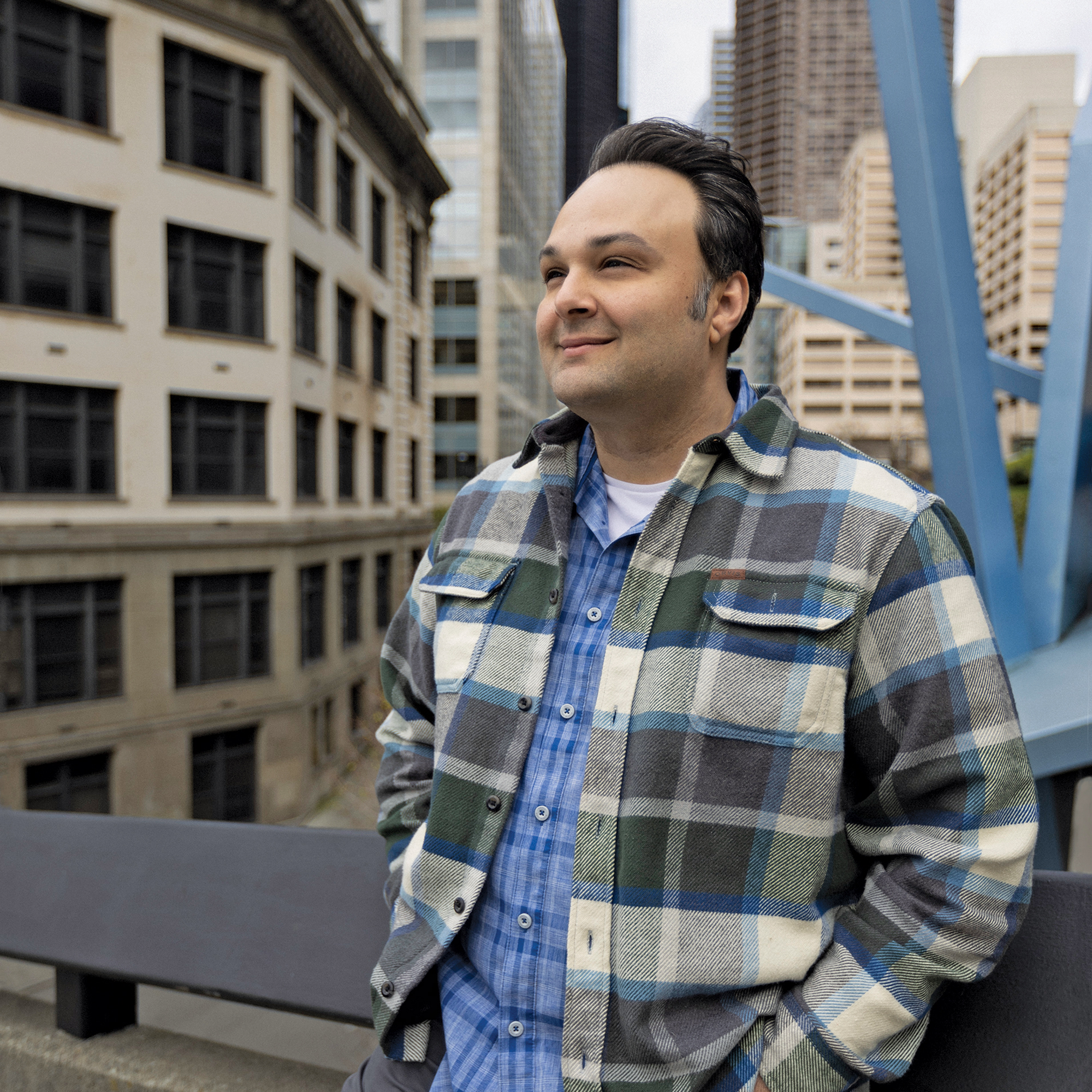Fraud finder Fraud finder Fraud finder
As a supervisory special agent, Josh Crabtree, ’08, works to safeguard the U.S. travel system.
By Rachel Gallaher | Photo by Ron Wurzer | June 2023 issue

A U.S. passport is one of the most powerful—and most sought-after—identification documents in the world. The dark blue, gold-embossed booklet gives citizens the freedom to travel and gain assistance from the U.S. government when they go abroad. In the wrong hands, however, a U.S. passport can be equally valuable—but for all the wrong reasons. Josh Crabtree, ’08, spends a lot of time thinking about this. As a supervisory special agent with the Diplomatic Security Service, Crabtree runs a Seattle-based office of special agents and investigative specialists conducting passport and visa fraud investigations.
“Think of things like identity theft, human trafficking and other criminal ventures,” says Crabtree, who has been a member of the U.S. Foreign Service for 15 years. “First and foremost, we are the law enforcement arm of the U.S. Department of State, and we have the largest global presence of any law enforcement agency—our reach and breadth are unmatched.”
Founded in 1916, the Diplomatic Security Service has 2,500 special agents, security engineering officers, security technical specialists and diplomatic couriers working and traveling worldwide. Their main objectives are to serve as the law enforcement liaison and security adviser to U.S. ambassadors overseas, where they also manage complex security programs that protect diplomats, facilities and information. They also provide protective security details for the Secretary of State, the U.S. United Nations ambassador and foreign dignitaries who travel to the U.S. Domestically assigned agents mostly conduct criminal investigations that safeguard the U.S. travel system against everything from identity theft to nefarious efforts of foreign governments and large-scale criminal enterprises. While it sounds like the stuff of blockbuster movies, these days Crabtree’s work consists mostly of supporting his staff of 13.
Just because he’s more desk-bound lately, it doesn’t mean his job is any less interesting—or fulfilling. The office also augments protective services where needed. Last year, Crabtree deployed agents to Chile, Qatar, Kenya, Belgium and Thailand.
“We are a very small agency—not like a three-letter agency you may see in Hollywood, but we’re out there.”
Josh Crabtree
When he was single, Crabtree enjoyed international and last-minute assignments. Now married with two children, he’s happy to stick to the Seattle office. “I had a difficult assignment at the U.S. Embassy in Kabul,” he recalls, “and that took me away from my family. As the director of the embassy’s tactical operations center, I was responsible for managing government response and briefing major decision-makers on critical events that were happening at that moment. We saved a lot of people and facilitated the capture of a lot of terrorists and other hostiles.”
Raised in Mukilteo, Crabtree joined the Army after high school. Four years later, he enrolled at Edmonds Community College, then transferred to the UW, where he graduated with a B.A. in both political science and law, societies and justice. A 2006 internship landed him at the DSS Seattle office.
Over the next 15 years, Crabtree had assignments domestically (Los Angeles, Charleston, South Carolina and Washington, D.C.) and internationally (Iraq, Poland, Eritrea, Moldova and Afghanistan). When a post opened in Seattle, he jumped at the chance to return home.
“I don’t know if most of the general public even knows we exist,” he says. “We are a very small agency—not like a three-letter agency you may see in Hollywood, but we’re out there. If you’re overseas and you get jammed up and need to come to a U.S. embassy for assistance, there’s a chance that you could encounter some of my extraordinary colleagues. We’re out there to help.”